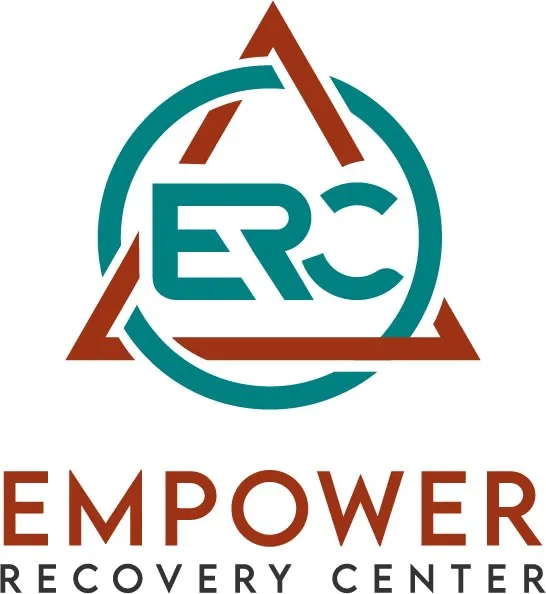Explore leading Xanax rehab centers and treatment facilities in Los Angeles and nearby areas. Xanax addiction treatment centers offer specialized programs to help individuals safely manage withdrawal, overcome dependency, and address the underlying causes of misuse. Through medically supervised detox, targeted therapy, and ongoing counseling, these facilities focus on building healthier coping strategies, emotional resilience, and lasting recovery. Find the best Xanax rehab centers dedicated to supporting long-term healing and a renewed sense of control over your life.
Ads
More Info
Advertisement Disclosure
Our website is funded by advertisers who pay for prominently labeled placements.
Read More145 Rehab Centers were found
Filters
Locations
- Los Angeles(+98)
- Culver City(+14)
- Westlake Village(+13)
- Woodland Hills(+11)
- Beverly Hills(+10)
- Santa Monica(+9)
- Sherman Oaks(+7)
- West Hollywood(+6)
- Malibu(+5)
- Chatsworth(+5)
- Pasadena(+5)
- Encino(+5)
- Redondo Beach(+4)
- Lancaster(+4)
- Reseda(+4)
- Studio City(+4)
- Northridge(+3)
- San Mateo(+3)
- Lynwood(+3)
- Vernon(+3)
- Van Nuys(+3)
- Tarzana(+3)
- North Hollywood(+3)
- Glendale(+3)
- Gardena(+3)
- Riverside(+3)
- Granada Hills(+2)
- Shadow Hills(+2)
- Venice(+2)
- Orange County(+2)
- Pomona(+2)
- West Hills(+2)
- Valley Village(+2)
- Burbank(+2)
- Brentwood(+2)
- Long Beach(+2)
- Sun Valley(+1)
- Torrance(+1)
- San Jacinto(+1)
- San Pedro(+1)
- Upland(+1)
- Whittier(+1)
- Toluca Lake(+1)
- Thousand Oaks(+1)
- Simi Valley(+1)
- Mission Viejo(+1)
- Acton(+1)
- Beaumont(+1)
- Wilmington(+1)
- Panorama City(+1)
- Anaheim(+1)
- Laguna Hills(+1)
- Inglewood(+1)
- Alhambra(+1)
- Rosemead(+1)
- Maywood(+1)
- Manhattan Beach(+1)
- Monterey Park(+1)
- Claremont(+1)
- Covina(+1)
- La Puente(+1)
- Pico Rivera(+1)
- San Fernando(+1)
- Azusa(+1)
- Santa Fe Springs(+1)
- Glendora(+1)
- Agoura Hills(+1)
- El Segundo(+1)
- Duarte(+0)
- Sunland(+0)
- Downey(+0)
- Cudahy(+0)
- El Monte(+0)
- Compton(+0)
- Hermosa Beach(+0)
- Cerritos(+0)
- Calabasas(+0)
- Bellflower(+0)
- Bell Gardens(+0)
- Avalon(+0)
- Arcadia(+0)
- Altadena(+0)
- Paramount(+0)
- South El Monte(+0)
- Walnut(+0)
- West Covina(+0)
- Santa Clarita(+0)
- San Gabriel(+0)
- San Dimas(+0)
- Rolling Hills(+0)
- Orange(+0)
- Hawaiian Gardens(+0)
- Palmdale(+0)
- Norwalk(+0)
- Montebello(+0)
- Lakewood(+0)
- South Pasadena(+0)
- Carson(+0)
- Hawthorne(+0)
Conditions
- Drug(+278)
- Alcohol(+219)
- Mental Health(+195)
- Opioid(+193)
- Cocaine(+184)
- Trauma(+180)
- Methamphetamine(+177)
- Benzodiazepines(+174)
- Heroin(+173)
- Prescription Drugs(+159)
- Depression(+152)
- Anxiety(+149)
- Xanax(+145)
- Synthetic Drugs(+138)
- PTSD(+133)
- Adderall(+131)
- Marijuana(+112)
- Bipolar(+109)
- Ecstasy(+104)
- MDMA(+99)
- Behavioral Health(+93)
- LSD(+93)
- Psychedelics(+91)
- Fentanyl(+71)
- Stress(+71)
- OCD(+69)
- Personality Disorders(+63)
- ADHD(+61)
- Gambling(+38)
- Eating Disorders(+35)
- Anorexia(+34)
- Binge Eating Disorder(+34)
- Bulimia(+33)
- Schizophrenia(+32)
- Gaming(+28)
- Internet Addiction(+27)
- Sex Addiction(+25)
- Burnout(+23)
- Pornography(+22)
- Shopping(+10)
- Narcissism(+8)
Insurances
- BlueCross BlueShield(+129)
- Aetna(+126)
- Anthem(+105)
- Cigna(+105)
- United Healthcare(+66)
- Humana(+63)
- Optum(+53)
- Medicaid(+53)
- MHN(+51)
- Magellan Health(+47)
- Kaiser Permanente(+39)
- Medicare(+31)
- GEHA(+31)
- ComPsych(+29)
- Highmark(+25)
- AmeriHealth(+13)
- Tufts Health(+11)
- Oscar(+9)
- CareFirst(+9)
- Molina Healthcare(+8)
- Intermountain Healthcare(+6)
- Beacon Health Options(+2)
- UMR(+2)
- NYSHIP(+2)
- ILWU(+2)
- Geisinger(+2)
- Empire Life(+2)
- Empire BCBS(+2)
- Bright Health(+2)
- GuideWell(+1)
Therapies
Understanding Xanax Addiction and Rehab in Los Angeles
Xanax, a powerful benzodiazepine prescribed for anxiety and panic disorders, has become one of the most commonly abused prescription drugs in Los Angeles. While it is effective when used as directed, prolonged or excessive use can lead to dependency, severe withdrawal symptoms, and dangerous side effects. Many individuals begin taking Xanax legally with a prescription, only to find themselves unable to function without it.
Xanax addiction is particularly challenging because of how quickly tolerance develops. Over time, users need higher doses to achieve the same calming effect, increasing the risk of overdose. Stopping Xanax suddenly can trigger life-threatening withdrawal symptoms, making medical detox and professional rehab essential for those struggling with dependency. To better understand the risks and signs of other forms of substance use, explore our comprehensive list of addiction and mental health conditions, including alcoholism, drug addiction, trauma disorders, cocaine addiction, benzodiazepine addiction, and opioid addiction.
How Xanax Addiction Develops
Xanax works by depressing the central nervous system, slowing brain activity to produce feelings of relaxation and relief from anxiety. While this effect can be beneficial in the short term, regular use can alter brain chemistry, making it difficult for the body to regulate stress and emotions naturally.
Many people misuse Xanax by taking larger doses than prescribed, mixing it with alcohol or other substances, or using it recreationally to feel "high." Over time, the brain becomes reliant on the drug to maintain balance, leading to a state of physical and psychological dependency. Once addiction takes hold, stopping or reducing use can result in intense withdrawal symptoms, including severe anxiety, tremors, seizures, and even life-threatening complications.
Recognizing the Signs of Xanax Dependency
Xanax addiction often develops gradually, making it difficult to recognize until the dependency is severe. One of the first warning signs is an increased tolerance, where users need more of the drug to feel its effects. Many individuals find themselves taking Xanax more frequently, running out of prescriptions early, or seeking alternative sources to maintain their supply.
Behavioral changes are also common. People struggling with Xanax addiction may seem unusually drowsy, confused, or detached. They may withdraw from social interactions, neglect responsibilities, or experience sudden mood swings. Some individuals develop blackouts or memory loss, forgetting conversations or events that occurred while under the influence of the drug.
The Dangers of Xanax Withdrawal
Xanax withdrawal is among the most dangerous of any drug, often requiring medical supervision to prevent life-threatening complications. Symptoms can begin within hours of the last dose and escalate rapidly. Common withdrawal effects include severe anxiety, panic attacks, insomnia, nausea, muscle pain, and irritability. In extreme cases, individuals may experience hallucinations, seizures, or heart irregularities.
The sudden removal of benzodiazepines from the body can lead to "rebound anxiety", where anxiety symptoms return more intensely than before. Because of these risks, a medically supervised detox is strongly recommended. In a professional setting, individuals can gradually taper off Xanax while receiving medications and therapeutic support to ease withdrawal symptoms. You can learn about different levels of care for addiction recovery, including options for medically supervised detox and residential treatment.
Treatment Options for Xanax Addiction
Overcoming Xanax addiction requires more than just detox—it involves addressing the underlying reasons for use, learning new coping strategies, and rebuilding mental and emotional stability. Treatment programs in Los Angeles offer a range of approaches tailored to each individual’s needs.
Inpatient rehab is often recommended for individuals with severe addiction, providing 24/7 medical monitoring, therapy, and a structured environment free from triggers. Outpatient programs are available for those who need flexibility while still receiving intensive therapy and medical support.
Cognitive behavioral therapy is a core component of Xanax addiction treatment, helping individuals identify and modify thought patterns that contribute to drug use. Many people rely on Xanax to cope with stress or emotional distress, so therapy focuses on developing healthier ways to manage anxiety and life challenges. Holistic approaches, such as mindfulness, meditation, and physical activity, are also incorporated to promote long-term well-being. Explore various therapies for addiction and mental health used in Xanax rehab and recovery.
For some individuals, medication-assisted treatment may be used to stabilize the nervous system and reduce the risk of relapse. Doctors may prescribe alternative anti-anxiety medications with a lower risk of dependency while addressing co-occurring mental health conditions such as depression or PTSD.
The Link Between Xanax Use and Mental Health
Many people who develop a dependency on Xanax initially started using it for anxiety or panic disorders. However, long-term use can actually worsen mental health symptoms, making anxiety more severe when the drug is not in the system. Some individuals experience emotional numbness, mood swings, or depression as a result of prolonged Xanax use.
For those struggling with both addiction and mental health issues, dual diagnosis treatment is crucial. These programs focus on treating both conditions simultaneously, ensuring that individuals receive the therapy, medication management, and emotional support needed to achieve lasting recovery.
Life After Xanax Rehab
Recovery from Xanax addiction is an ongoing process that requires continued support and lifestyle changes. Many individuals need aftercare services, such as therapy, support groups, and relapse prevention strategies, to maintain sobriety.
One of the biggest challenges post-rehab is learning how to manage anxiety and stress without medication. Rehab programs teach coping techniques such as breathing exercises, mindfulness, and cognitive restructuring to help individuals regain control over their emotions. Many people also benefit from lifestyle changes, including exercise, healthy sleep routines, and engaging in fulfilling activities that reduce stress naturally.
Ongoing support groups, such as Narcotics Anonymous (NA) or mental health-focused recovery programs, provide a network of encouragement and accountability. Many rehab centers in Los Angeles also offer alumni programs and follow-up care to help individuals stay on track.
Finding the Right Xanax Rehab in Los Angeles
Choosing a rehab program for Xanax addiction depends on factors such as the severity of dependency, the need for medical detox, and the presence of co-occurring mental health disorders. Inpatient treatment is recommended for individuals with severe withdrawal symptoms, while outpatient programs can be effective for those who require flexibility.
Speaking with a treatment specialist can help determine the best approach, ensuring that individuals receive the right level of care for their recovery journey. With the right support, it is possible to overcome Xanax addiction and regain a healthy, balanced life.
Frequently Asked Questions
How long does Xanax withdrawal last?
Is it dangerous to quit Xanax cold turkey?
Can anxiety be managed without Xanax?
Does insurance cover Xanax rehab in Los Angeles?
Ads
More Info
Advertisement Disclosure
Our website is funded by advertisers who pay for prominently labeled placements.
Read More













































